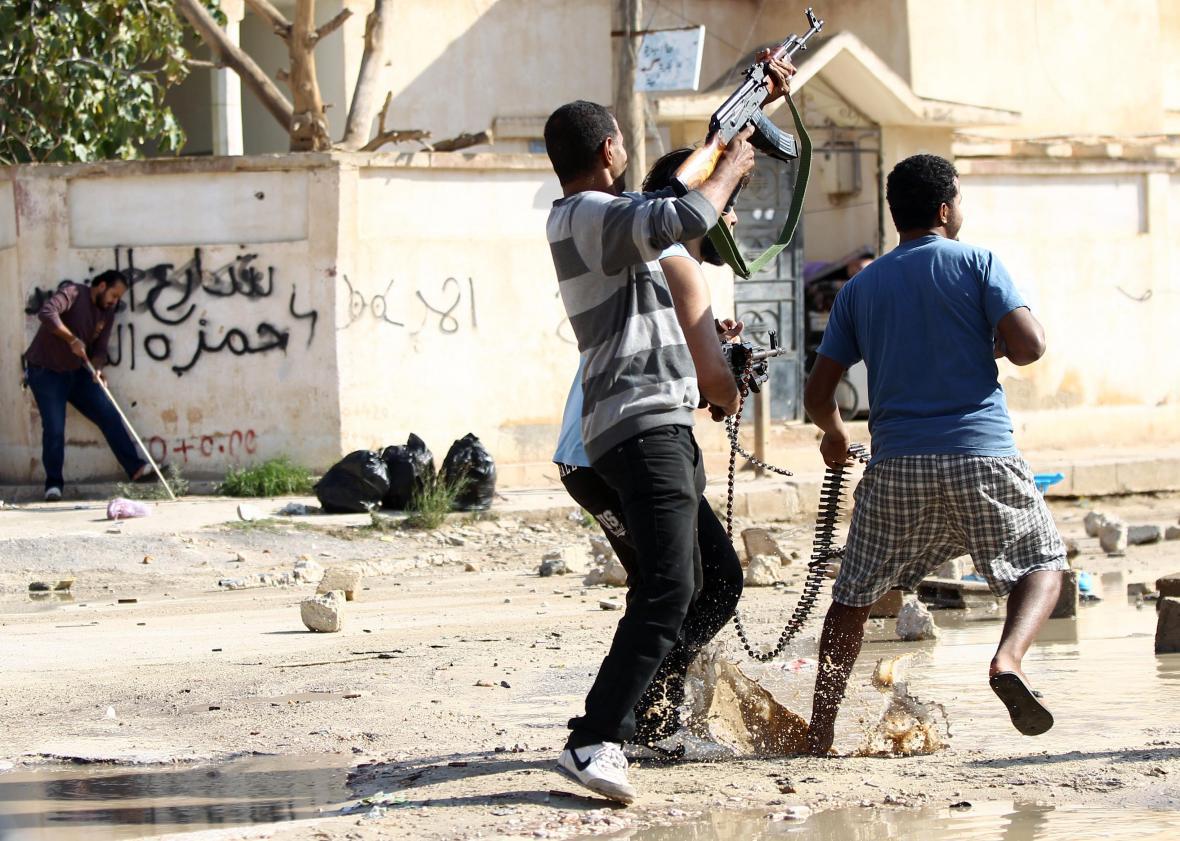As Hillary Clinton testifies before the House Benghazi Committee on Thursday, the attention of America’s political class and media are once again zeroed in on the former secretary of state’s responsibility for the 2012 attack that killed two U.S. diplomats. “Benghazi” has become a political meme in the United States—a rallying cry for conservatives, a punch line for liberals—almost entirely divorced from the eastern Libyan city it refers to. Amid the partisan circus this week, it’s worth remembering that Benghazi is a real place, and that things aren’t going very well there.
This week marked the fourth anniversary of the death of Muammar Qaddafi. His overthrow was once viewed as a triumph of the Arab Spring uprisings, and the use of prudent multilateral military power to back them. It doesn’t look as great today.
Libya currently has two governments, each with their own ministers and legislatures, with much of the country’s territory disputed between them. One government—the successor to the one that took power after the revolution, is backed as legitimate by the international community, including the United States—operates out of the eastern city of Tobruk. The other government, the Islamist Libya Dawn, has controlled the capital city Tripoli for more than a year. Each faction is backed by a patchwork of semi-aligned militias. A third force, fighters affiliated with ISIS, controls territory around the central city of Sirte, challenging the authority of both governments.
The U.N. has been working to broker a peace agreement between the two rival factions and form a unity government, but both factions rejected the U.N. envoy’s latest power-sharing proposal this week, disagreeing over the composition of the new government. Both sides are reportedly split over whether to accept the deal and talks are ongoing.
The Tobruk-based legislature’s mandate technically ran out on Tuesday, and without control of the capital, its legitimacy is fading even with the backing of the international community. The one big asset it does have is the backing of a militia led by Gen. Khalifa Haftar, arguably the most powerful person in the country. Haftar is likely to either be the country’s savior, its next strongman dictator, or some messy combination of the two. A former confidant of Qaddafi who later fell out with him, he returned from exile in the United States after the uprising and in 2014, launched Operation Dignity, a military campaign to drive out the Islamist militias operating around Benghazi. This was followed by the more ominously named “Operation Doom” to retake the city earlier this year.
Control of Benghazi is disputed right now, and the city has become the conflict’s primary battlefield. In recent days, it has been the site of heavy fighting between Haftar’s pro-government forces and Islamist militias, including ISIS as well as Ansar al-Shariah, the group blamed for the 2012 attack on the U.S. outpost.
Given the degree to which Clinton supported the intervention to oust Qaddafi—she once touted Libya as a test case for the smart application of American military power—you might think that the country’s current chaos, rather than a 3-year-old incident, would be more of an issue for her campaign. But her opponents seem overwhelmingly more interested in making “Benghazi” into the Obama administration’s Watergate than in what’s happening in the actual place with that name.
